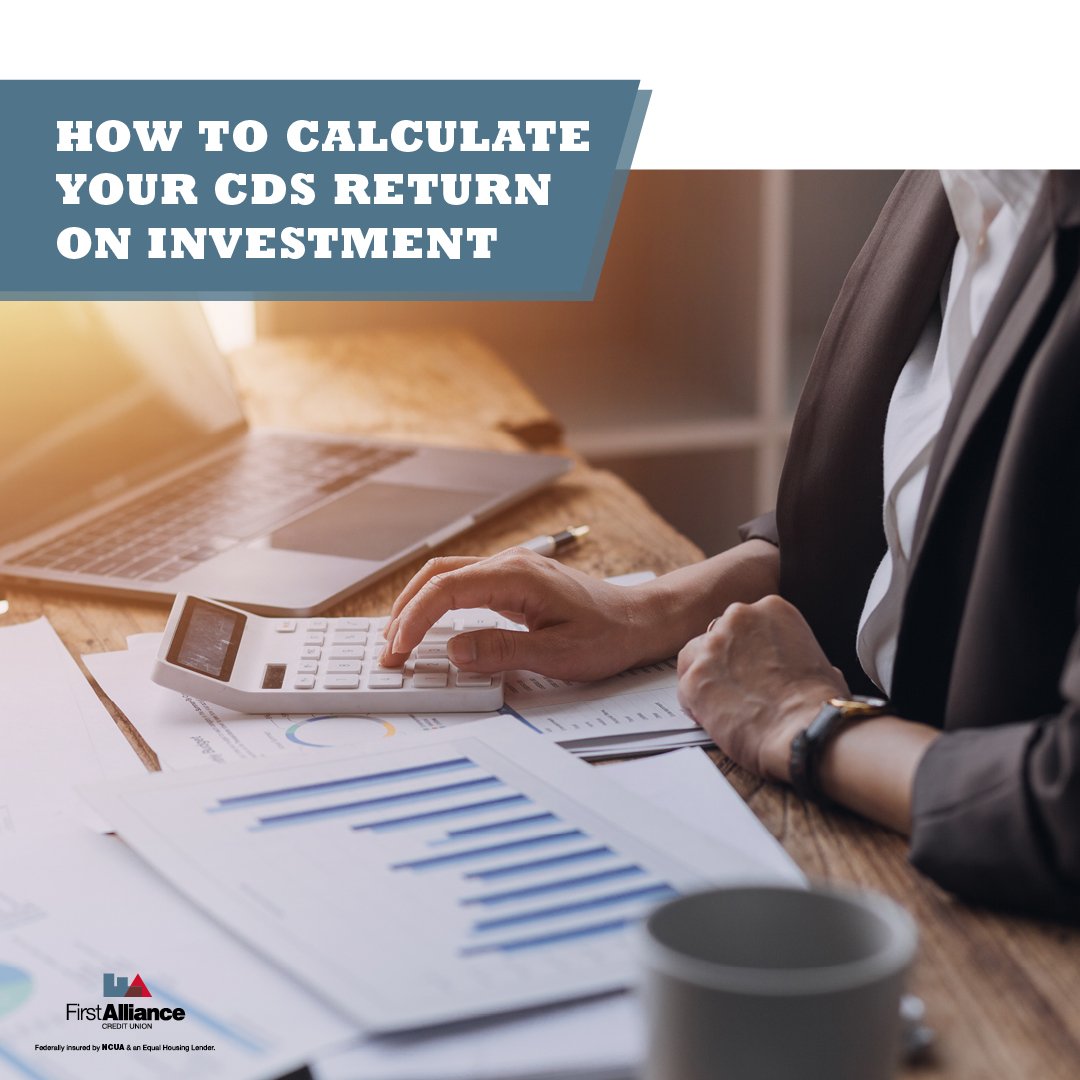What you Should Know About CD Interest Rates
One of the features that makes a certificate of deposit (CD) so attractive is its high rate of interest compared to other savings accounts. However,...

When you open a CD, you’re probably thinking about the higher interest rate you’ll get, and how much money you’ll have when the CD matures. However, the odds are good you’ll be at least slightly curious about how much money you’re getting back, especially if you’re planning to use that money to reach a financial goal.
![]() Fortunately, it’s not hard to figure out the interest you’ll get from a CD. You just need to be aware of a few factors.
Fortunately, it’s not hard to figure out the interest you’ll get from a CD. You just need to be aware of a few factors.

Let's start with the most obvious factor first. The initial deposit you make when opening a CD account plays a crucial role in determining how much interest you'll earn. This money will be what earns interest, and it should go without saying that the more money you put into the CD, the more money you'll earn in interest.
If you're not sure how much you're planning on investing in a CD account, you can always start with the minimum deposit requirement. For most financial institution's certificates of deposit, this is a few hundred dollars. In the case of First Alliance Credit Union, the minimum deposit requirement is $500.
You might be thinking that $500 is a lot of money, and you'd be right. Having said that, if you have some money in a bank account that you have no immediate plans to use, you might want to put some of it in a safe place with a higher yield than you'd get from other accounts.
An emergency fund is a great example of this.
The biggest factor that will determine how much your CD will earn is the interest rate. You’re probably aware that interest is the money your money earns while you’re keeping in a savings account or investment account like a CD, and that the interest rate is the percentage of money your money will earn. However, you might not know that credit unions and banks have different ways they talk about interest.
When you look for CD rates on a credit union, you might not see them listed under "interest." Instead, you might see the phrase "dividend" instead. This is mostly because when credit unions were starting out, they were paying dividends on the share accounts members had, and the terminology has continued into the present day.
It's worth mentioning that you'll get higher rates of interest on a CD the longer the time period you select.
Speaking of months, you’ll also need to know how long you’ll have the CD open, otherwise known as the term. If you have a CD with longer terms you can measure in years, like 12 months, 24 months or even 60 months, all you have to do is multiply your deposit by the annual percentage yield, or APY. However, if you have a short-term CD with a maturity date that is less than a year in the future, or a year and a few months, you’ll have to do a bit more calculating.
All you have to do is calculate the dividend rate of the CD, then multiply that rate by the number of months in your CD. If you have 1,000 in an 8-month CD with a 3% interest rate, for instance, first multiply 1,000 by .03, which will give you 30, and divide that by 12, to get a dividend rate of $2.50 a month. Multiply that by 8, and you can discover that you’ll ultimately get $20 when your CD matures.
Of course, that amount isn’t quite accurate. There’s one more very important factor you’ll need to remember…
Compound interest is the secret ingredient of investors and businesses worldwide. Put simply, it’s the interest your interest earns.
Let’s say you put $5,000 in a 60-month CD that pays 4% interest. After the first month, you’ll get $16.67 in interest. After the second month, though, you’ll be getting 4% based on the $5,016.67 in your account, which will give you $16.72 in interest. Admittedly, this isn’t a huge amount, but the next month, you’ll earn a bit more and a bit more for the next 58 months. Eventually, your money will earn an additional $104 in compound interest in addition to the $1,000 of interest.
If you’d like to calculate how much you’ll earn on a CD including compound interest, you can use the formula A = P(1 + r/n)^(n*t). In this formula,
Of course, you can also use a compound savings calculator, like the one on First Alliance Credit Union’s website. All you need to do is enter a few key details about your CD, and the calculator will tell you how much you’re getting back.
The interest you can earn on a CD will depend on a variety of factors such as the CD's interest rate, the length of the CD term, and the amount of money you deposit. Generally, the longer the CD term and the higher the interest rate, the more interest you will earn on your CD.
One of the many advantages a CD offers over investments like the stock market is that figuring out the amount of interest you’ll get back is pretty easy. When you know the initial deposit, the fixed interest rate and the term of the CD, you can plug that information into a formula that will help you figure out how much you’ll get when the CD matures.
An online compound interest calculator will make the process of figuring out even easier, like the one available on the First Alliance Credit Union website. By entering key details about your CD, including the initial deposit, interest rate, and term, the calculator will provide you with an estimate of the amount you can expect
If you’d like to see what a CD can do for your money, become a member of First Alliance Credit Union and talk with a member advisor about opening a CD account today. You’ll be able to keep track of your CD’s progress with our online banking platform and mobile app.
You might even be able to take advantage of the promotional CDs we offer with some of our best CD rates. In fact, you could even set up a CD ladder that to take advantage of CDs with high rates of interest while still keeping part of your money available.

One of the features that makes a certificate of deposit (CD) so attractive is its high rate of interest compared to other savings accounts. However,...

A savings account offers several financial advantages, but a high interest rate usually isn’t one of them. Savings accounts with a half percent...

When you put your money into an account that earns interest, you’re taking your finances to the next level. You’re making your money work for you,...